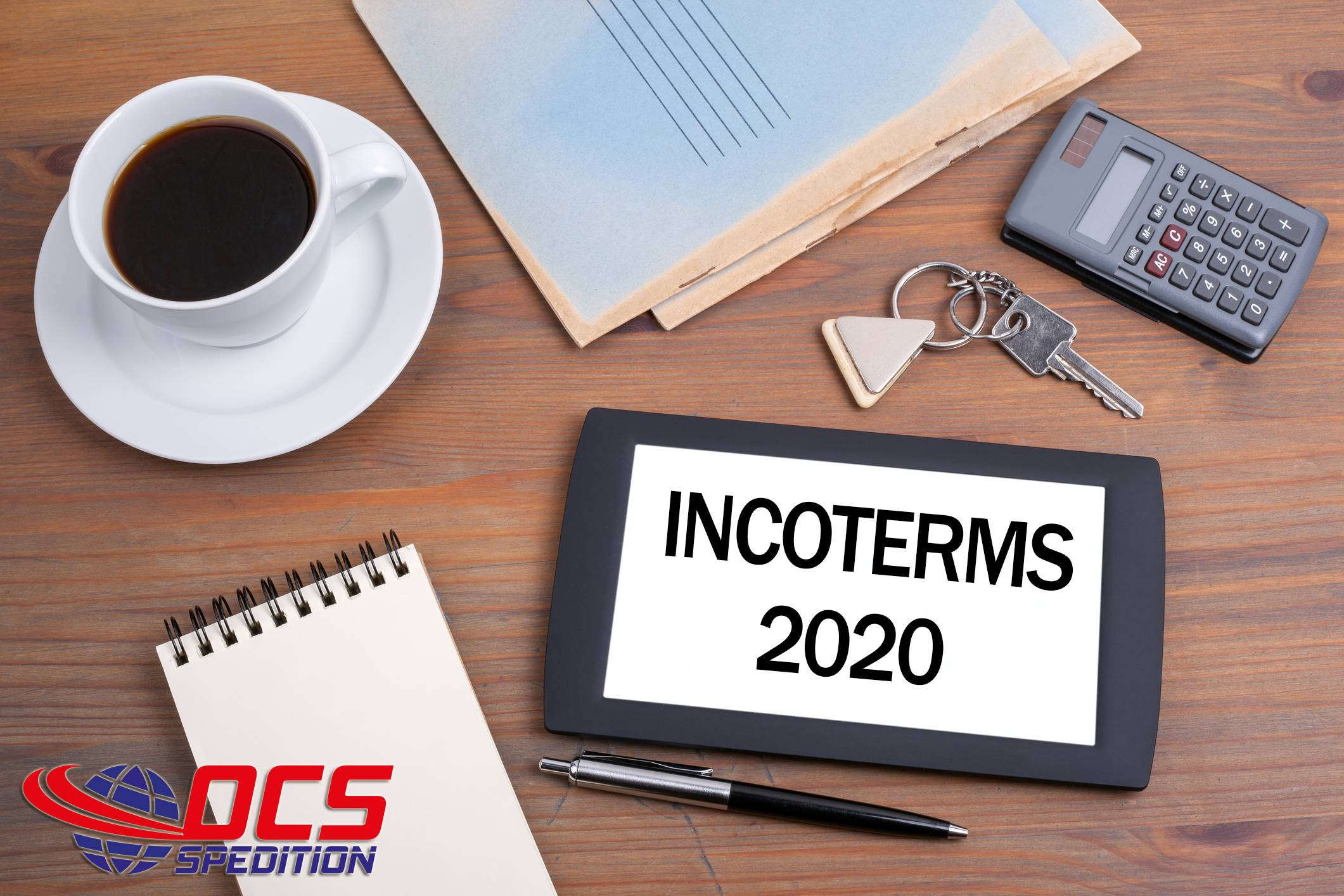Incoterms have the task of regulating the obligations of buyers and sellers in international trade in goods in a transparent, clear and globally recognized manner. The current version of the Incoterms® came into force on January 1, 2020. Here you can find out which changes are particularly important for logistics and your company.
What are these Incoterms® actually? stands for International Commercial Terms® . They have been published at regular intervals since 1936 by the International Chamber of Commerce (ICC). There are over 500 experts on the international committee who regularly revise these clauses and conscientiously adapt them to the constantly changing trading world. The importance is beyond question, after all, the Incoterm clauses are used in around 90 percent of all sales contracts worldwide.
Goods are transported in a variety of ways – by rail, by plane, by ship or by truck. With the Incoterms clauses as a globally valid standard, trading partners not only regulate the costs and responsibilities for every transport route, but also the handover of goods and liability for damage or loss of them. This in turn makes trading significantly easier, as misunderstandings and legal disputes can be avoided. The Incoterms rules support global trade in more than 120 countries - they have been translated into over 30 languages.
What are the “blue clauses”?
Since the Incoterms® 2010 published in 2010, for the first time there has been a classification of clauses according to the type of transport route; the resulting “blue clauses”, for example, are only suitable for ship transport: FAS (Free Alongside Ship), FOB (Free on Board, Named Port of Shipment), CFR (Costs and Freight = costs and freight, named place, ie port of destination) and CIF (Cost, Insurance and Freight = costs, insurance and freight) . In principle, the clauses would be unnecessary because the EXW, FCA, CPT, CIP, DAT, DAP and DDP clauses are generally suitable for every type of transport, including shipping. Likewise, a DAP/DAT agreement could replace some FCA delivery – and vice versa.
New term DPU and elimination of DAT
One of the most important innovations is the deletion or abolition of the term DAT (Delivery At Terminal). The use of this will no longer be possible in the future, but the term DAP, which stands for “Delivery At Place”, . A new term has also emerged: DPU stands for Delivery At Place Unloaded. In contrast to the DAP clause, in which the goods are delivered ready for unloading at the destination, DPU includes unloading.
Pleasing: the term CIP meets German customs
Almost all transport insurance worldwide has always been based on the transport insurance conditions of the IUA (International Underwriting Association of London), known as Institute Cargo Clauses. Within this framework, a distinction is made between three basic terms for insurance:
- The Institute Cargo Clauses (C) only offer minimum insurance protection against expressly predefined damage events
- The Institute Cargo Clauses (B) include additional coverage for additional events
- The Institute Cargo Clauses (A) offer the highest insurance protection and cover all risks (“All Risks”). At least if these are not expressly listed in the exclusions.
Another important change now comes into play with the CIP clause (Carriage and Insurance Paid; freight paid): Here the insurance coverage has changed permanently. Insurance coverage ICC-A (Institute Cargo Clauses: All Risk) is now required, while CIF continues to only offer ICC-C coverage (minimum insurance protection against expressly mentioned damage events). Since Germany in particular is a country of “insurance friends” in every respect, it is now much easier to use a suitable Incoterm for your delivery.
Attention: Current Incoterms® remain valid!
Because: what was agreed depends on the contract design. This means that matters regulated in the contract that are based on the 2010 agreements do not automatically lose their effectiveness. Nevertheless, the eighth publication of the Incoterms® 2020 to date continues to offer reliability and security for all sides of the trading transaction, especially in times of impending international trade conflicts. If you have any further questions about Incoterms® 2020, please feel free to contact us. Our trained employees will be happy to answer your questions about the changes in a personal consultation.






